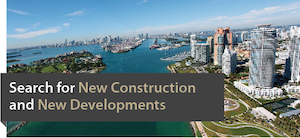From TRD New York: When the Federal Reserve raised interest rates in March for the second time in three months, it signaled that the nine-year stimulus campaign launched during the financial crisis was nearing an end. Overseas, however, “lower for longer” remains the reality, with low or even negative interest rates expected to continue in countries like Germany and Japan.
Even amidst uncertainty created by the Trump administration’s foreign policy, with yields in their own countries low, some foreign investors are gearing up to spend more on U.S. real estate — a welcome influx of cash. That’s especially true as tighter currency restrictions are forcing Chinese buyers to pull back.
U.S. interest rates have remained at near zero for almost a decade — a monetary policy that provided cheap money, fueling real estate investment as the economy recovered from the recession. But while the Fed is moving to gradually raise rates — most recently from .75 to 1 percent — overseas governments are standing pat with low ones.
Last year, the European Central Bank and the Bank of Japan even ventured into the realm of negative interest rates. The European Central bank’s deposit rate has been at negative .4 percent since early 2016. And the Bank of Japan’s policy board last month said it would continue to apply a negative interest rate of minus .1 percent.
Spencer Levy, head of research in the Americas for CBRE, speculated that investment from Germany and Japan could help offset China’s impending drop.
“Negative interest rates are driving capital out of those countries,” he said.
Japan Post Bank, the country’s largest financial institution, is shifting trillions of yen from Japanese government bonds, which are yielding less than eight basis points. While the bulk of that is going to foreign credit and equities, the bank is moving up to 3 percent of its $1.8 trillion portfolio — or $55 billion — into alternative assets like private equity, hedge funds and real estate.
Meanwhile, its sister company, Japan Post Insurance Co. Ltd., is preparing to shift away from domestic bonds and diversify its $700 billion portfolio by investing in alternative assets.
“There’s a tremendous amount of pent-up savings looking for yield,” Levy said. “They’re overcoming the hangover of the late 1980s and early 1990s spending binge.”
In February, Japanese trading conglomerate Mitsui & Co. made its first foray into the U.S. real estate asset management market, acquiring a 20 percent stake in the Los Angeles-based real estate investment firm CIM Group.
The announcement came shortly after Japanese conglomerate ASO Group’s splashy West Coast purchase in December. ASO paid somewhere north of $300 million to buy the Spruce Goose Hanger in Playa Vista, which is net leased to Google.
In Manhattan, meanwhile, Tokyo-based Unizo Holdings has spent nearly $770 million since late 2013 buying up small office buildings.
Will Silverman, head of the investment sales group at Hodges Ward Elliott, said he expects Japanese buyers to follow the strategy set by such foreign investors as Chinese insurance giant Fosun International, which paid a whopping $725 million to buy 1 Chase Manhattan Plaza before branching out to condo development.
“Somebody plants the flag with a blockbuster trophy purchase and then begins creating a broader exposure for themselves,” Silverman said.
Woody Heller, head of the capital markets group at Savills Studley, said these kinds of buyers want stable assets that resemble the safety of government bonds. “They’re looking for something that has the closest profile to fixed-income investments,” he said.
Still, it is unlikely that Japan will unseat China as the most active foreign buyer of U.S. real estate. The $15.9 billion Chinese investors spent captured 24 percent of the foreign-buyer market last year, according to CBRE. In second place was Canada, which made up 19 percent.
Germany — the fourth-most active foreign buyer last year with 9 percent of the market — may well advance, however.
Last year, Germany’s Union Investment Real Estate spent $1.4 billion — or 35 percent of its deal volume — on U.S. real estate. The Frankfurt-based company, which had focused on office properties, is now diversifying into the hotel sector. It spent $203 million last year to buy the Courtyard Marriott Hotel in the Financial District.
Meanwhile, last July, Frankfurt’s DekaBank launched an open-ended, dollar-denominated real estate fund for high-net-worth private investors. A few weeks later, it worked with Landesbank Baden-Württemberg and Minneapolis-based U.S. Bank to provide a $580 million loan to refinance Vornado Realty Trust’s Manhattan Mall at 100 West 33rd Street.
The bottom line, emphasized Studley’s Heller, is that negative interest rates will have institutions looking for better yield, because they “can’t stick hundreds of millions of dollars under a mattress.”
“It’s not hard to beat negative,” he said.
Click Here to read more.







